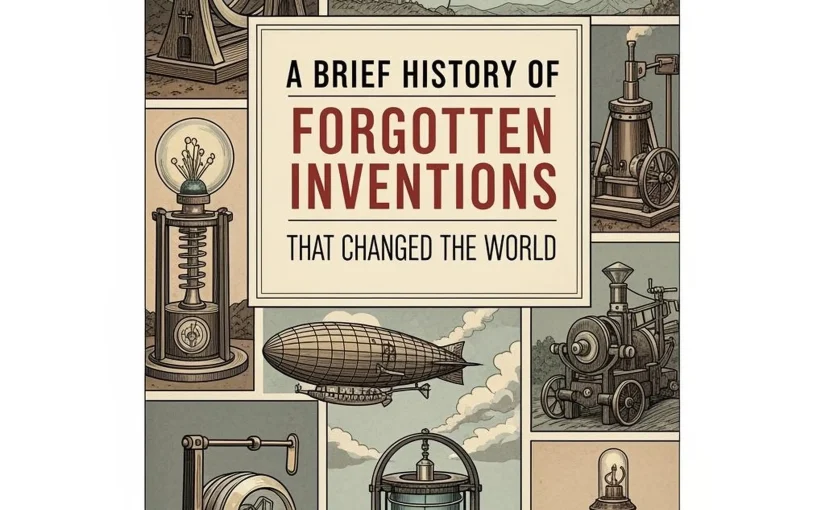Throughout history, countless inventions have transformed the way we live, work, and communicate. While some inventors and their creations are household names, many groundbreaking innovations have faded into obscurity. These forgotten inventions, however, played crucial roles in shaping modern society. In this article, we’ll explore the brief history of several overlooked inventions that changed the world—and why they deserve a place in our collective memory.
The Antikythera Mechanism: The Ancient Greek Computer
Discovered in a shipwreck off the coast of Greece in 1901, the Antikythera Mechanism is considered the world’s first analog computer. Dating back to around 150 BCE, this intricate device used a series of gears to predict astronomical positions and eclipses. Its advanced engineering stunned modern scientists and revealed just how sophisticated ancient technology could be.
Why We Forgot:
The mechanism’s complexity was unmatched for over a thousand years. Its purpose was lost as ancient knowledge faded, only to be rediscovered by archaeologists and researchers in the 20th century.
The Baghdad Battery: An Ancient Power Source?
In the 1930s, archaeologists uncovered a set of clay jars near Baghdad, Iraq, each containing a copper cylinder and iron rod. Some believe these artifacts, dubbed the Baghdad Battery, could have been used to generate a small electric charge—possibly for electroplating or medicinal purposes.
Why We Forgot:
Without written records, the true purpose remains a mystery. The Baghdad Battery’s potential to generate power was forgotten as civilizations fell and knowledge was lost.
The Pneumatic Tube System: The Original Information Highway
Long before the internet, cities like Paris, London, and New York relied on pneumatic tube systems to transport mail and telegrams rapidly across urban centers. These networks of tubes used air pressure to move canisters filled with documents, revolutionizing communication in the 19th and early 20th centuries.
Why We Forgot:
The rise of telephone networks and digital communication rendered pneumatic tubes obsolete, relegating this once-vital technology to the annals of history.
The Telharmonium: The First Electronic Musical Instrument
Invented by Thaddeus Cahill in 1897, the Telharmonium was the world’s first significant electronic instrument. Weighing over 200 tons, it generated music using electrical signals sent over telephone lines, laying the groundwork for modern synthesizers and electronic music.
Why We Forgot:
The Telharmonium’s massive size and high operational costs made it impractical. It was eventually abandoned as newer, more compact technologies emerged.
The Safety Elevator: Lifting Cities to New Heights
Elisha Otis’s safety elevator, invented in 1852, included a mechanism that prevented the elevator from falling if the cable broke. This crucial innovation made skyscrapers possible and transformed urban architecture forever.
Why We Forgot:
While elevators are everywhere today, few people remember Otis or appreciate how vital his safety mechanism was to the growth of modern cities.
Tarmac (Macadamized Roads): Paving the Way Forward
The invention of tarmac, or macadamized roads, by John Loudon McAdam in the early 19th century revolutionized transportation. His method of layering crushed stone created smoother, more durable roads, making travel faster and safer.
Why We Forgot:
Modern roads have evolved, but McAdam’s contribution is often overlooked amid newer advancements in transportation infrastructure.
Why Are These Inventions Forgotten?
Many inventions fade from memory because they are replaced by newer technologies or because their inventors were overshadowed by more famous figures. Sometimes, historical records were lost, or the inventions were so seamlessly integrated into daily life that people stopped noticing their impact.
Remembering the Roots of Innovation
Forgotten inventions like the Antikythera Mechanism, pneumatic tube systems, and the Telharmonium remind us that progress is built on countless innovations, both big and small. By exploring their stories, we gain a deeper appreciation for the ingenuity that continues to shape our world.

